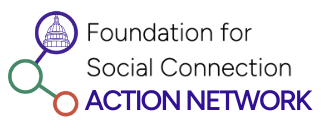Years of evidence show that loneliness, isolation, and disconnection are risk factors for poor physical and mental health outcomes for the general public. Research from 2020 shows that social isolation and loneliness led to a 29% and 26% increased risk of mortality, respectively. (1) Compounding the experiences of loneliness and social isolation with comorbidities such as diseases like cancer can be an unimaginable burden on an individual.
While the COVID-19 pandemic thrust the epidemic of loneliness and isolation among general populations to the forefront of media, research, and advocacy efforts, there is still more we need to know about their lasting effects on vulnerable or compromised populations such as oncology patients. A recent study published by Cancer found that of their patient sample, more than half were categorized as feeling lonely – far exceeding previous benchmarks. The study concludes that given the existing symptomatic burden on these individuals, clinical interventions may be warranted(2). A separate study asserts that cancer-specific tools are needed to assess (1) loneliness attributed to cancer (i.e., cancer-related loneliness), and (2) negative social expectations related to cancer that may precipitate and sustain loneliness. As a result, a Cancer Loneliness Scale was developed, tested, and proven to have both clinical and research utility (3).
Cancer-related loneliness can result from a variety of factors related to the complex and deeply personal cancer experience. Factors contributing to cancer-related loneliness include:
- The initial shock and confusion around navigating a recent cancer diagnosis. Individuals may feel that, in addition to their diagnosis being burdensome or overwhelming, they are navigating through a health-related journey that their loved ones may have no experience with, leading to feelings of anxiety, depression, or loneliness.
- The lack of a strong support system outside the medical setting. Being without such a network can exacerbate loneliness and/or isolation relating to an individual’s cancer diagnosis, treatment, or survival journey, and is a risk factor for mortality.
- The treatment itself. Some treatment pathways are time-consuming and may cause added feelings of exhaustion, anxiety, and stress, coupled with unresolved pain and lack of sleep.(4) These effects can act as a barrier to strong social or physical connections.
While the cancer experience is in and of itself complex, emotional, and difficult, we are beginning to understand the added intricacies of loneliness, isolation, and disconnection as part of this journey.
The increase in early detection efforts may hold the promise for some degree of alleviation: identifying cancer earlier may limit the severity of isolation and loneliness individuals feel following a diagnosis. For example, catching cancer earlier could allow an individual the critically important runway to better prepare for the care journey, build or strengthen a support system, or seek out mental health tools or resources. The Multicancer Early Detection (MCED) Consortium aims to evaluate emerging data from MCED studies and is working to establish standards in MCED technology by defining the clinical and public-health value of the technology, providing guidance for its use in clinical practice, and developing a public-outreach approach that identifies and mitigates potential health inequities that could arise from the use of MCED technology.
Loneliness and isolation are detrimental to our health and well-being both as individuals and as a society. Those experiencing loneliness, isolation, or disconnection while navigating cancer diagnosis, treatment, or survivorship are a critically important population to be mindful of in the Coalition to End Social Isolation and Loneliness’ ongoing advocacy to create a more connected and healthy society.
Citations
- Emily Barone/Elijah Wolfson for TIME; SourcePRO. 2020
- https://acsjournals.onlinelibrary.wiley.com/doi/full/10.1002/cncr.33603
- https://www.ncbi.nlm.nih.gov/pmc/articles/PMC5479729/#R9
- https://www.ajmc.com/view/experiences-with-loneliness-among-patients-with-cancer

